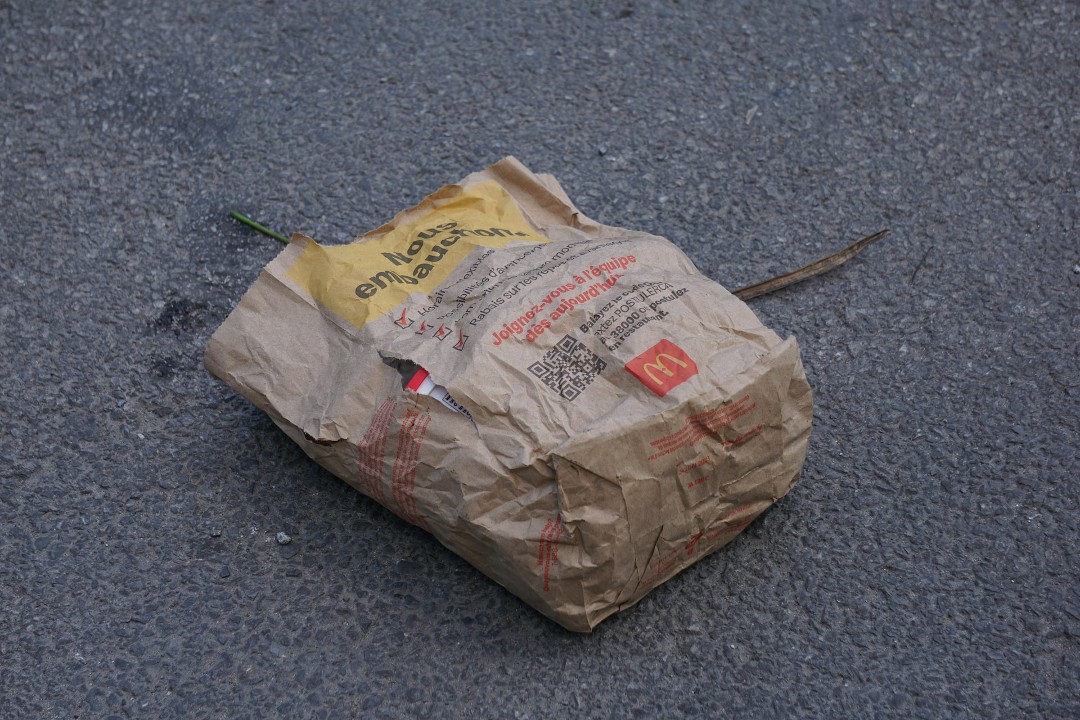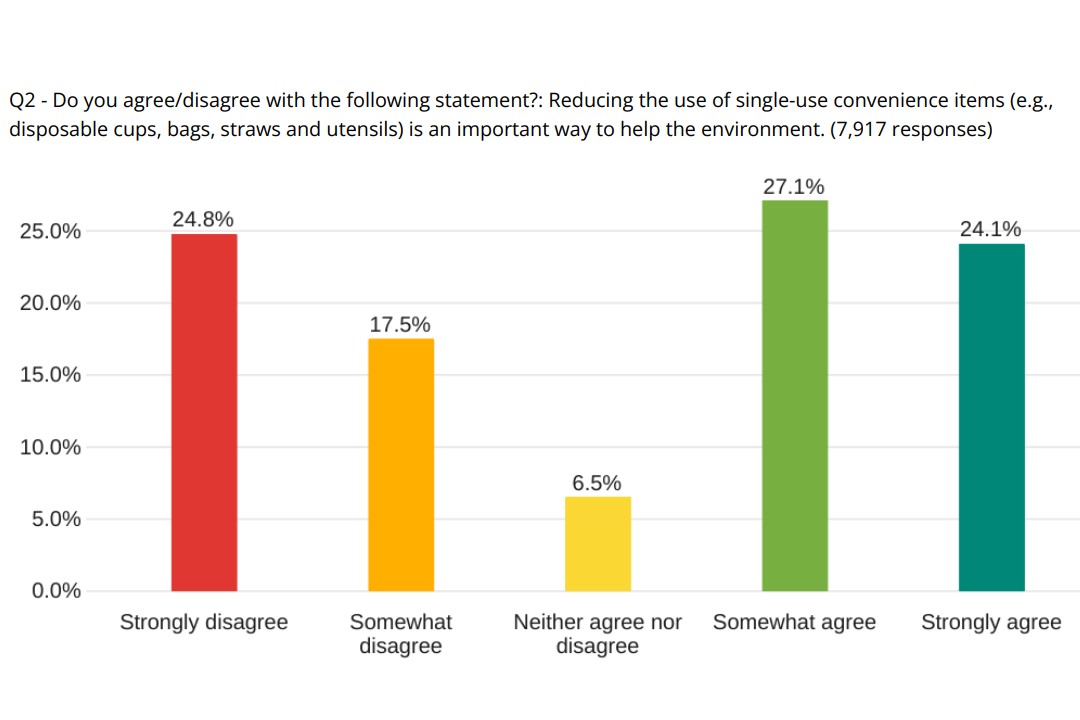A survey completed by nearly 8,000 residents shows that nearly half of respondents support Edmonton's single-use item reduction bylaw and the other half don't.
The city survey asked if reducing single-use items is an important way to help the environment. About half of respondents said yes, while a quarter said they were strongly against the statement. Asked if the bylaw was a reasonable way to reduce waste, the spread of responses was about the same.
The city put the bylaw into force in July 2023. Under it, customers must now pay 15 cents for a paper bag and $1 for a reusable bag when shopping at retail stores or buying fast food, among other changes. Fees are set to increase in July 2024, to 25 cents for a paper bag and $2 for a reusable one.
Nearly 8,000 people responded in November to the city's survey about the bylaw, making it the second-most subscribed city survey in 2023.
Those surveyed suggest they view reusable bags at retail stores differently than they do paper bags at takeout and drive-thru restaurants. About 70% of respondents said they never bring their own bag when buying takeout or drive-thru food, and just over half said they would continue to pay for a paper bag if the fees were to increase. Meanwhile, most respondents said they typically bring their own reusable bags when shopping and would continue to do so if fees increase.
The results of the survey were published ahead of a utility committee meeting on Jan. 22, where councillors and speakers discussed the survey as well as options for increasing the bag fee.
Sean Stepchuk of Waste Free Edmonton told the committee that the low level of support for bag fees could make the bylaw more successful, especially in retail settings. "A $2 fee (for a reusable bag) will further incentivize people to get into the habit of actually bringing their bags, and when they do forget the odd time, it will cause them to think twice before they buy another cheap reusable bag when they already have a sack of them back home," he said. "I think it's clear that this is going to create further impact and further disincentivize the use of single-use bags."
Coun. Erin Rutherford said at the committee meeting that the survey didn't feature many respondents under the age of 24 or from lower income brackets, and asked administration to provide a memo to council with the survey answers from those groups. "I would be very interested in what their thoughts are on this," Rutherford said.
Business owners surveyed had stronger opposition to the bylaw and potential increases. Nearly three-quarters of them said they did not support an increase and that the bylaw was not an important way to help the environment. Less than half said they had been using fewer paper bags since the bylaw arrived.

A discarded McDonald's bag, which would have cost its recipient 15 cents if acquired in Edmonton after July 1, 2023. (David Maier/Unsplash)
The July 2023 bylaw brought in other measures designed to reduce the use of single-use utensils and straws. On these, business owners were again not supportive. More than half said they used the same amount or more of those accessories after the bylaw.

Only about half of surveyed Edmontonians think reducing the use of single-use items is an important way to help the environment. (City of Edmonton)
Administration said businesses have told the city that many customers haven't changed their behaviour in the wake of the bylaw. The city said it will conduct a waste characterization study in 2025 to get better data on what effect the bylaw has had.
Single-use bylaws are becoming fodder for provincial politics as well. Recently, five Calgary councillors introduced a notice of motion to repeal that city's single-use items bylaw. Alberta Premier Danielle Smith told reporters that she is looking into whether the Municipal Government Act allows cities to pass single-use item reduction bylaws.
